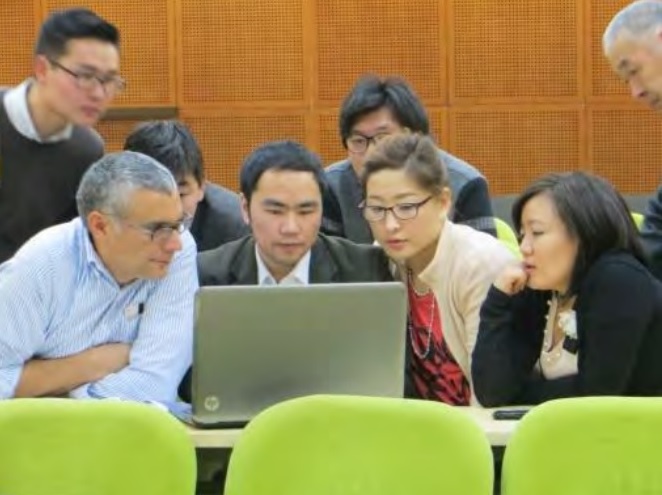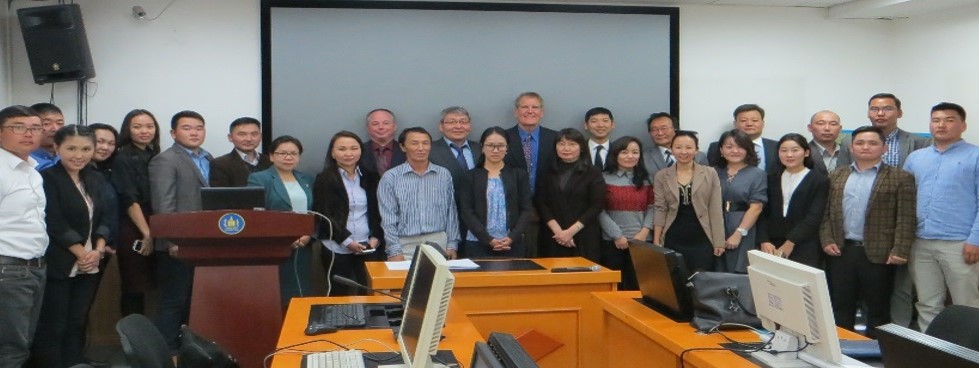Water Resources Activities in Mongolia
The US Army Corps of Engineers has been engaged with the Mongolian government, universities and NGOs on a series of water-related activities in recent years. Building on earlier GIS workshops, ICIWaRM has played a major role in workshops and training since 2013.

ICIWaRM’s Guillermo Mendoza assists Mongolian water professionals with collaborative modeling in the Tuul River basin.
This began with the three-phase Tuul River Flood Analysis Project. Its purpose was to deliver a scientific flood model for a 130-km portion of the Tuul River near Ulaanbaatar to examine the impacts of proposed dam construction along the river. The project gathered local data and used open-source USACE hydrology (HEC-HMS) and hydraulics (HEC-RAS) software to construct the model. The results show the potential benefits and risks, as well as its impact on the civilian populace in the Ulaanbaatar region. It also analyzed breaches of three proposed dam site locations upstream of Ulaanbaatar.
The program followed with three Shared Vision Planning and Integrated Water Resource Management (IWRM) workshops from 2013-2014. Some of the meetings discussed key stressor scenarios for the Selenge and Tui River Basins, including climate change and population growth. A prototype model for the Selenge Basin was created in Vensim, using economic growth, social well-being, and environmental sustainability criteria. The technical workshop produced a draft decision sketch and model to support funding prioritization of various desired activities. Approximately 40 participants from over 10 different Mongolian water organizations participated in the final workshop.

Tuul Groundwater Model Delivery Workshop Workshop participants
Based on input from the earlier workshops, in 2015 and 2016, ICIWaRM organized several groundwater modeling workshops, with instruction by the U.S. Geological Survey and in coordination with the Ministry of Environment, Green Development, and Tourism (MEGDT). Working with the U.S. Embassy, and a local Mongolian NGO, the Freshwater Institute, ICIWaRM helped a diverse group of workshop participants understand groundwater principles, aquifer characterization and the types of data necessary to design a groundwater model for the Tuul River Basin in Mongolia. Approximately 40 participants from about 15 different Mongolian water organizations and companies attended the first workshop.
This program has shown the power of bringing together different US government agencies, local NGOs and UNESCO to support a developing country with a broad array of related water resources management challenges.
For more information on ICIWaRM’s overall Mongolia initiatives, please contact Jon Fenske.
A summary of the activities in developing Mongolian groundwater modeling capacities is available in a scientific abstract here.
